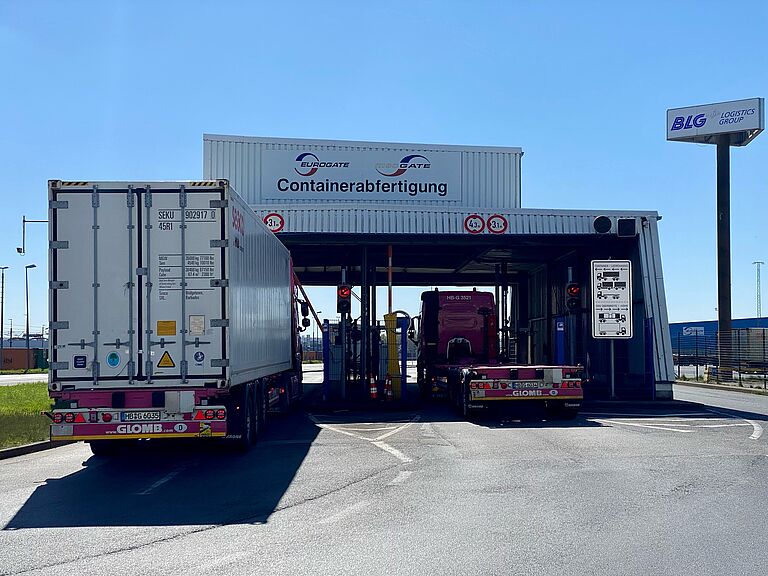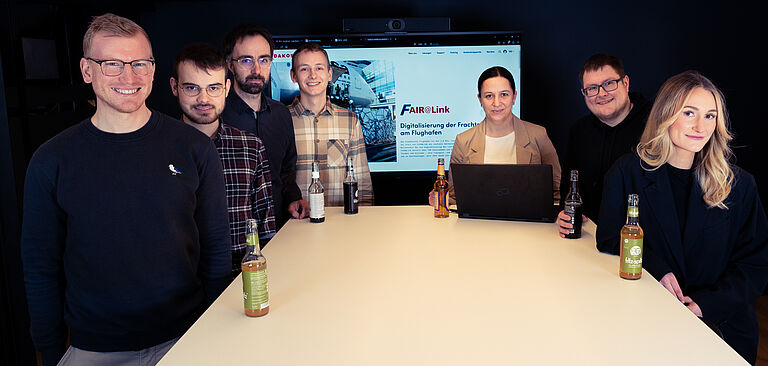Article • 26.04.2023
CO2 reporting will become mandatory in the foreseeable future
The forward-looking topic of sustainability is a major concern for the transport and logistics industry.
The offsetting of greenhouse gas emissions is evolving from a voluntary add-on to a mandatory requirement. For the transport and logistics industry, in other words: each transport segment must be accounted for and then reported as part of the total. It's a puzzle that requires someone to piece together the data. This is where Sven Reimers, Business Developer at DAKOSY, sees a good opportunity for platform providers to offer a much-needed service.
The forward-looking topic of sustainability is a major concern for the transport and logistics industry. Logistics accounts for about 10 percent of global CO2 emissions (McKinnon, 2018). The largest share is generated by road freight transport. Currently, this area offers a wide variety of ways to stand out from the competition, be it through sustainability assessments, transport emission calculators or the reduction of the CO2 footprint created. Many companies – like DAKOSY – also invest in environmental protection projects in order to compensate for emissions and become climate-neutral or climate-positive.
What previously was voluntary and carried out on an individual basis in the mid-sized logistics sector will take on a mandatory aspect in the next few years. Reimers cites the reasons: "EU and national requirements are increasingly regulating the management and reporting of emissions. In addition, the issue of sustainability is coming more and more into the public focus, so that logistics service providers are increasingly reporting their C02 emissions."

A variety of EU legislative proposals...
At EU level alone, there are currently several major legislative proposals that address the issue of sustainability. These include the EU Green Deal, the EU Climate Law, the Count Emissions EU, the REPowerEU, the EU Taxonomy, and the Corporate Sustainability Reporting Directive (CSRD). Reimers is particularly attentive to this last directive. It took effect at the beginning of the year and requires companies to report on sustainability on the basis of binding EU standards.
The directive will be implemented in stages: companies with more than 500 employees must already meet the criteria in fiscal year 2024. For the 2025 fiscal year, the directive will become applicable to companies with more than 250 employees or at least 40 million euros in annual revenue. Starting in 2026, small and medium-sized market-oriented capital companies will follow.
... and the shippers set the pace
"By that point at the latest, small and mid-sized logistics companies will be required to report emissions in an EU-compliant manner. However, this is more of a theoretical deadline," assesses Reimers and adds, "In reality, logistics companies as contracted providers are often a part of the supply chain of a larger company. And these will demand CSRD indicators from the forwarders they use, as well as their subcontractors, as soon as they themselves have to comply with the directive." He concludes that these service providers only have a few years to establish a reliable CO2 reporting system.
But how does a freight forwarding company that handles door-to-door transports for major shippers on an international scale now compile all the sustainability data generated by the many different modes of transport used, at all transshipment hubs, and including all the subcontractors it engages? "In the future, everyone involved in the transport chain will have to share the data on emissions generated during individual transport segments with their principals. There is no way around this," Reimers asserts. It is important that the data exchange is secure, neutral and of high quality.
A brief introduction
Sven Reimers, 29, has been working for DAKOSY as a Business Developer since 2022. Working as part of the IHATEC research project ROboB, he had already collaborated with the Hamburg-based software company. He has also been involved in other research projects in the field of logistics. From 2018 to 2022, Reimers was a research associate at the Institute for Logistics and Corporate Management at the Technical University (TUHH) in Hamburg. He also holds a master's degree in Logistics, Infrastructure and Mobility from the TUHH, which he completed in 2018.

Sven Reimers
IT platforms well-suited for sharing
One of DAKOSY's primary areas of expertise lies precisely in this segment. Via the community platforms at the seaport of Hamburg and the air freight hub in Frankfurt, the digitalizer already maps the planned and actual data for the supply chains in air and sea freight. "We have all the prerequisites to facilitate the exchange of this emissions data within our IT platforms," concludes Reimers.
Reimers uses an example to illustrate what seaport operators would have to face without data pooling: "In Hamburg's port hinterland area alone, there are nearly 500 trucking companies which will have to report their CO2 emissions to shipping companies or freight forwarders." The new requirements therefore have a major impact on the digital port industry.
DAKOSY develops services for sea and air freight
DAKOSY can bring this data together, Reimers believes. After all, the community platforms already contain a lot of transport-relevant information from import and export processing, which could also be supplemented with the sharing of emissions data. This could be particularly interesting for small and mid-sized companies. "Many of the larger companies, on the other hand, have their own data that could also be shared via the DAKOSY community platforms," Reimers suggests.
DAKOSY is already far advanced in its considerations with regard to a relevant product. "Discussions with cooperation partners, interested parties and long-term collaborators are underway in order to incorporate all these requirements," reveals Reimers. He emphasizes the need for mid-sized logistics companies in particular to respond promptly to the new regulations so that they do not fail to meet the sustainability reporting requirements in future contracts.

